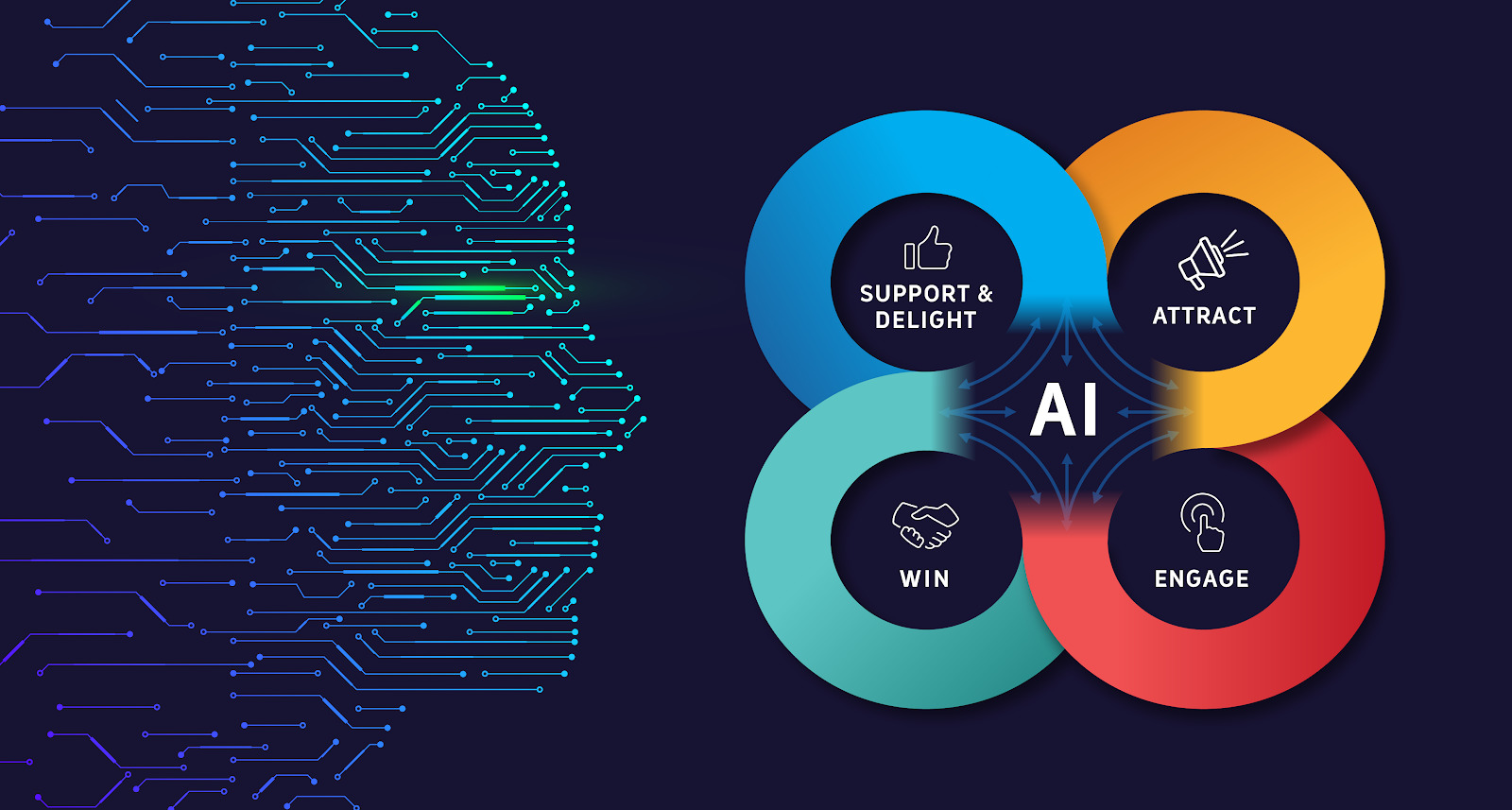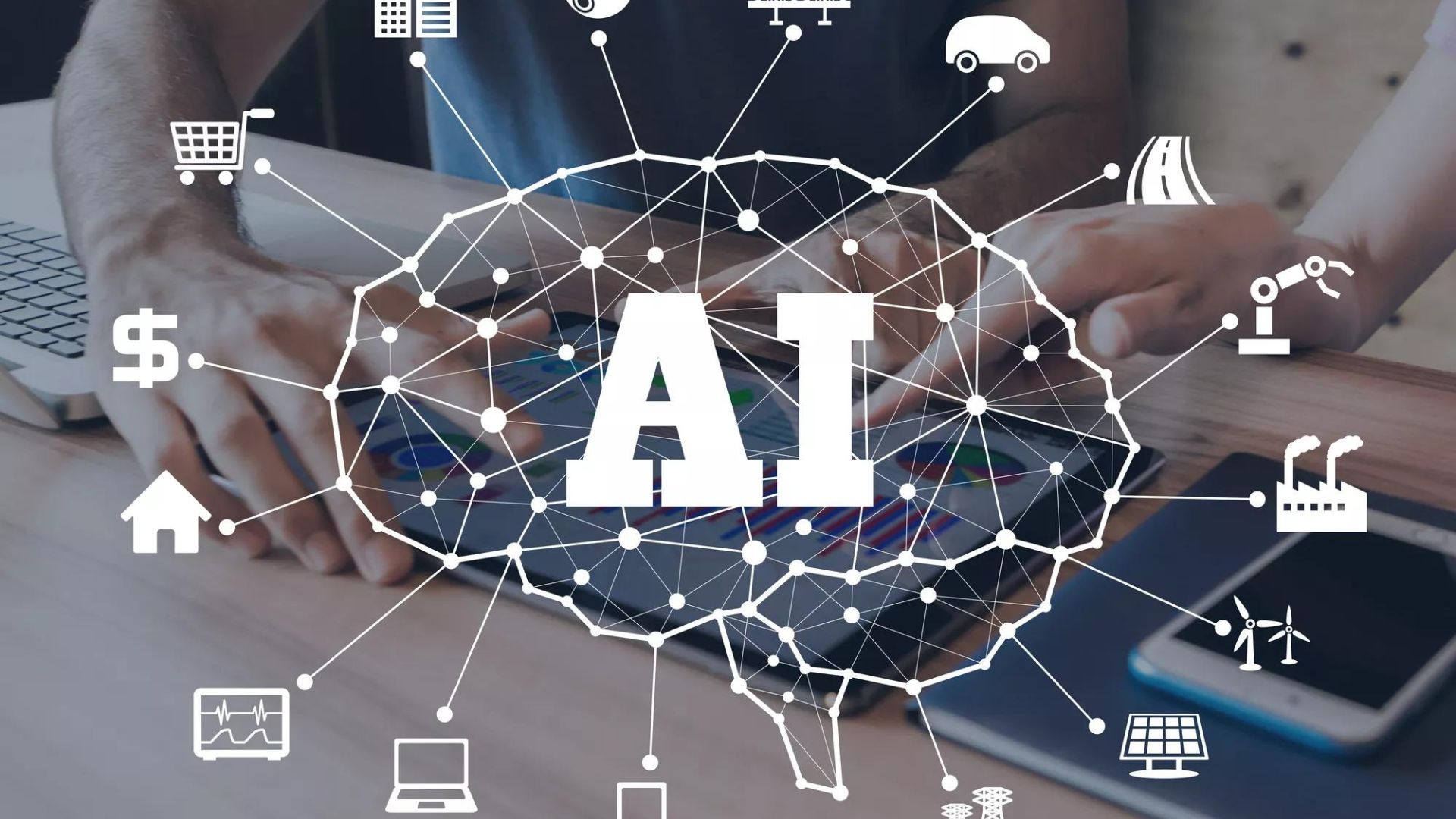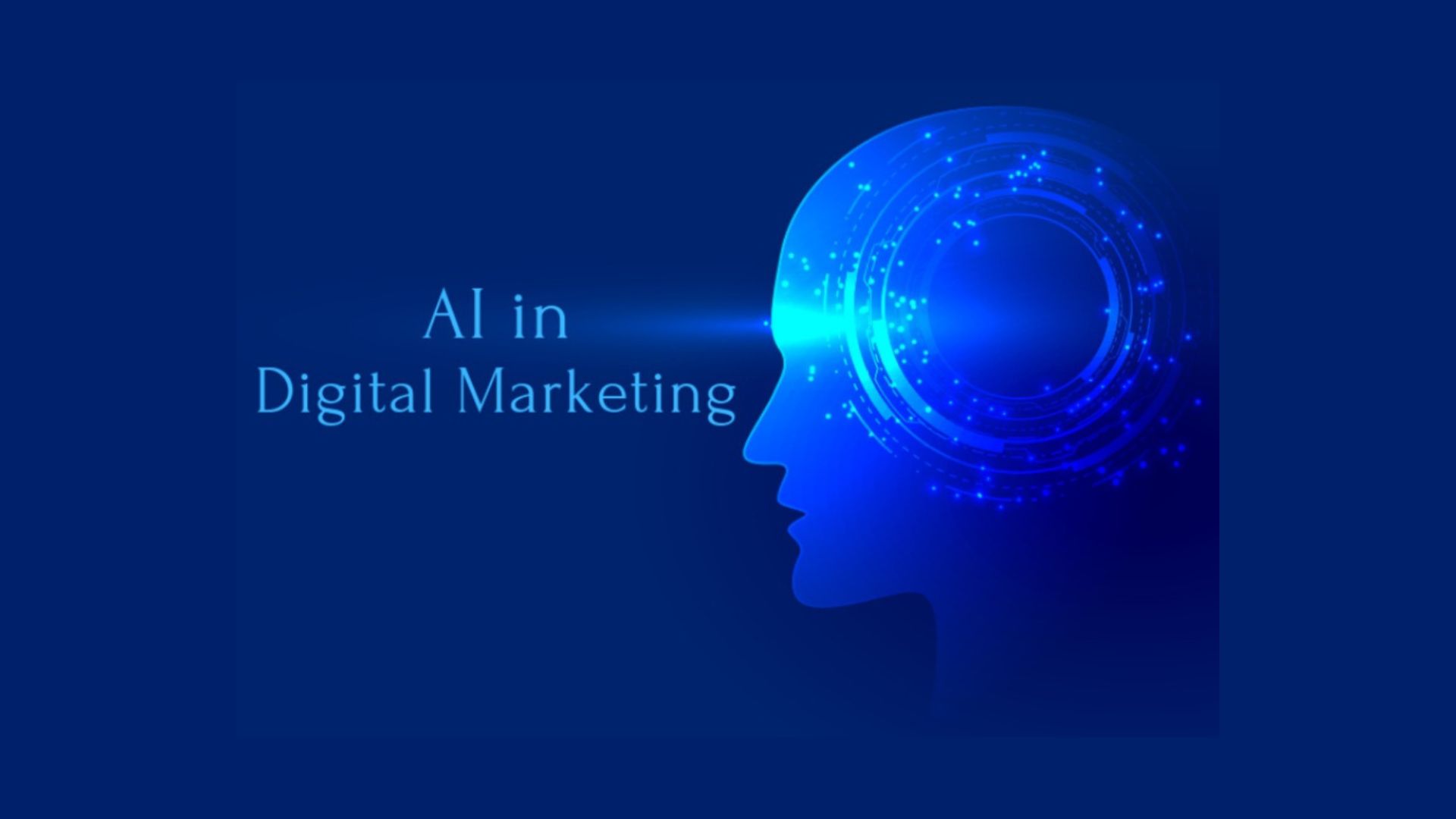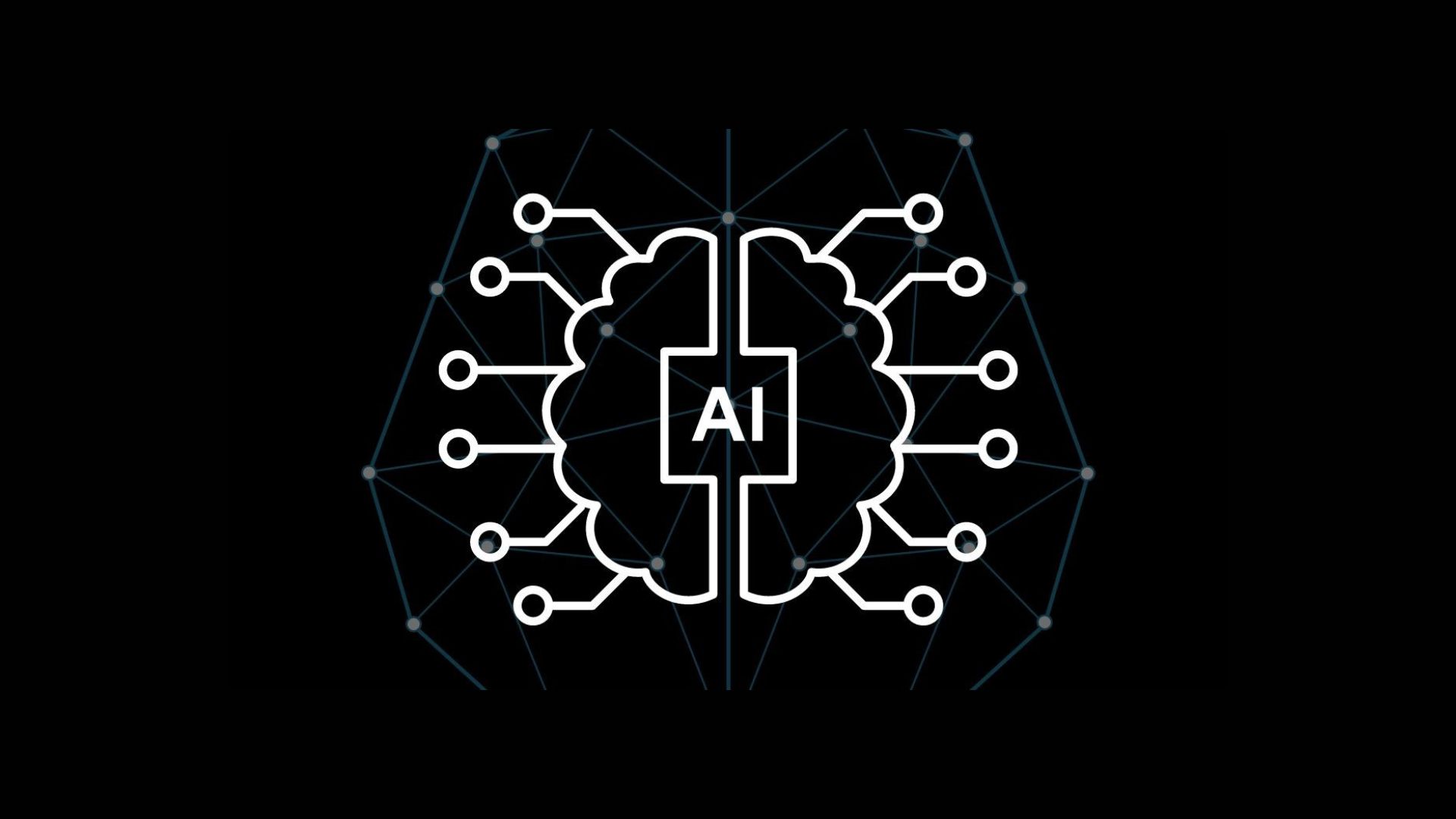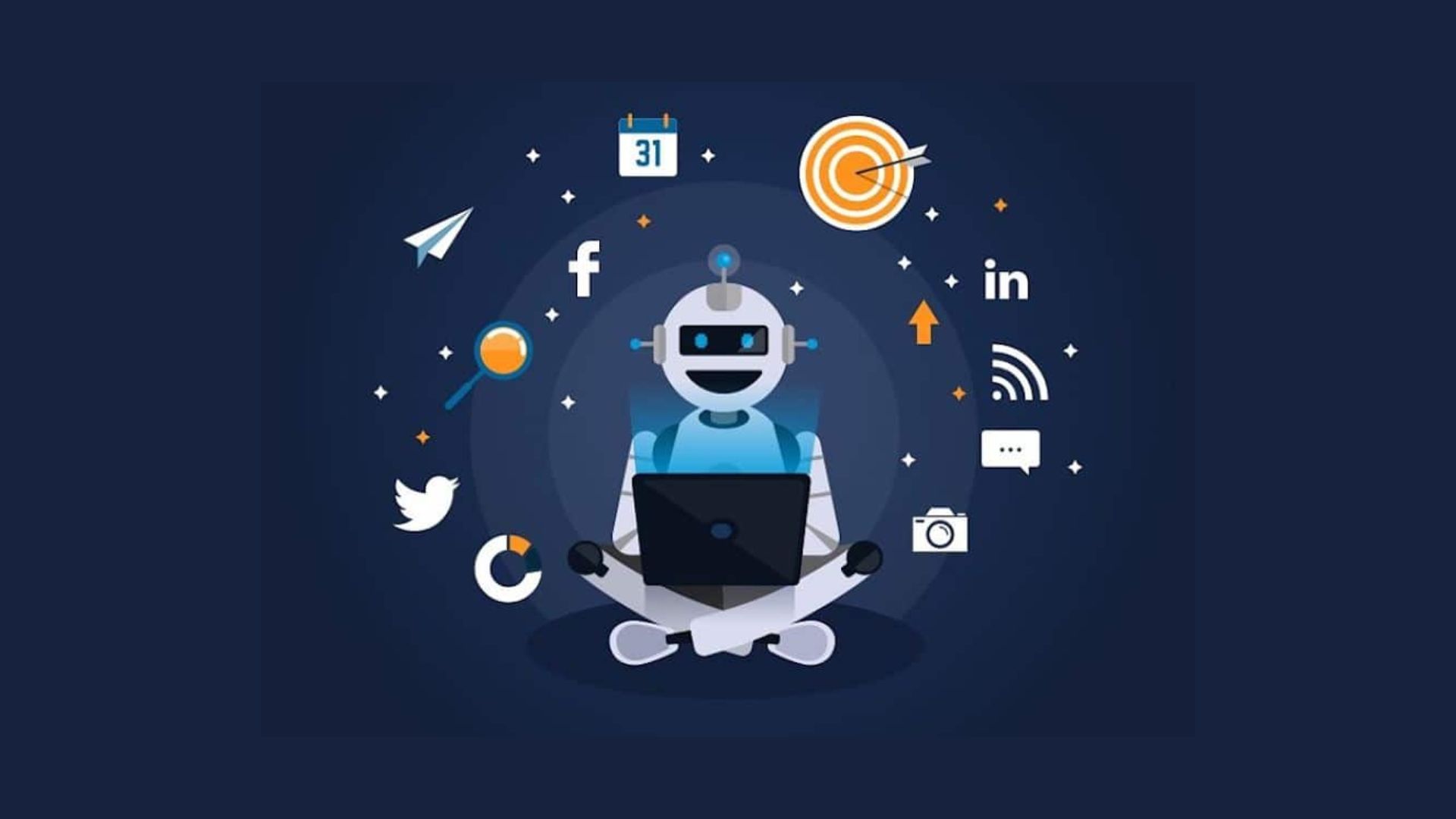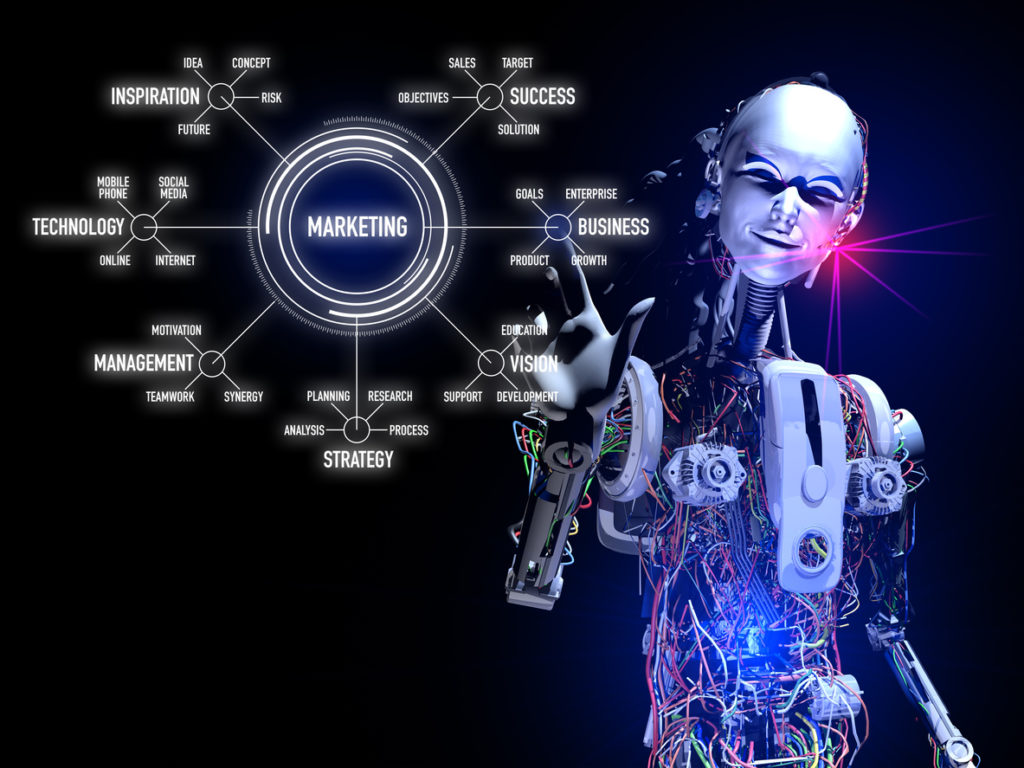
In the fast-paced and ever-evolving landscape of digital marketing, staying ahead of the curve is crucial for success. One of the most powerful tools at your disposal is Artificial Intelligence (AI).
Leveraging AI in your marketing strategy can significantly enhance your efforts, providing deeper insights, personalization, and efficiency. This article will explore how to use AI in your marketinginitiatives, unlocking new possibilities for growth and engagement.
Understanding AI In Marketing
AI marketing employs artificial intelligence technology to make automated judgments based on data collecting, data analysis, and further observations of audience or economic trends that may affect marketing activities. Artificial intelligence is widely employed in the fast-paced world of digital marketing.
61.4% of marketers have used AI in their marketing activities.
With the use of data and consumer profiles, AI marketing systems have learned how to engage with clients most effectively and can now automatically deliver them timed personalized communications.
Many modern digital marketers use AI to assist with tactical jobs that demand less nuanced judgment than can be provided by human workers.
What Is AI?
Artificial intelligence (AI) occurs when computers employ algorithms and massive data sets to go beyond if-then, rules-based programming frameworks. As the algorithms gain additional data, the system "learns," trains itself, and improves as the data set expands.
Instead of only analyzing consumer data and making suggestions to people, the system may employ NLP, NLU, and NLGen to generate unique content for each user.
What Is Machine Learning?
Predictive modeling for marketing campaigns, customer churn, and customer lifetime value; granular segmenting and targeting algorithms that can return recommendations for the most relevant consumer features as they relate to purchasing habits; mining structured and unstructured consumer data from multiple channels, such as emails, videos, photos, and social media postings.
What Is Deep Learning?
Deep learning is best used for specific tasks, such as visual or auditory identification. All of these are related to marketing tools that employ artificial intelligence and machine learning, such as programs that learn which users like specific banner advertising or phrases and then automatically generate that visual material or voice "chatting" with clients to distinguish between their requirements and desires.
The Explosion Of AI In Marketing
According to research by PwC, widespread use of AI in businessand other sectors would increase global GDP by $15.7 trillion and regional GDP by 26% by 2030. And today, because of developments like generative AI, AI is in a phase of rapid expansion.
Generative AI may be used to produce material, including text, graphics, audio, and video. When used in marketing, AI paves the way for improved speed, scalability, and accuracy in data analysis, targeted campaign development, and consumer engagement.
According to McKinsey, who studied the financial effects of generative AI, the technology "is poised to transform roles and boost performance across functions," such as marketing, sales, and customer operations.
Which AI Technologies Enable Marketing?
Effective social media marketing solutions, such as Sprout, combine cutting-edge AI technology behind the scenes to provide actionable analytics.
Better competitive advantage and market share can be achieved through the use of natural language processing tools like semantic classification, named entity recognition, and aspect-based sentiment analysis, as well as through the optimization of social content and the enhancement of customer engagement.
Machine Learning
Machine learning (ML) employs statistical approaches to evaluate social data for high-precision insights regarding customer experience, audience sentiment, and other marketing factors. Text mining, topic extraction, aspect categorization, semantic clustering, and other tasks may be automatically completed by ML models in a matter of seconds after they have been trained.
When it comes to expanding your company with no further investment in technology, AI-ML models are ideal since they grow wiser the more data they analyze over time.
Natural Language Processing (NLP)
Your AI marketing tool is powered by natural language processing, which allows it to comprehend social listening data on a semantic and contextual level. It combines rule-based linguistic and statistical approaches to let you quickly sift through a large volume of posts, emails, reviews, or comments and pull out the most relevant details.
Social listening-specific NLP algorithms can make sense of data that includes slang, code shifts, emoticons, acronyms, hashtags, and misspelt words. In order to assist you in coming up with effective material for social media, email messages, and more, this tool has been upgraded with natural language generation (NLG).
This means you can reach more people with your outreach efforts, have deeper conversations with your current clientele, and get more excellent financial benefits from your social media efforts.
Semantic Search
Semantic search algorithms are crucial in NLP because they help comprehend the intent of a phrase or lexical string without being dependent on keywords. These algorithms pull out the most relevant terms and group them semantically. This minimizes risks of duplication in text mining, particularly when sentiment analysis is involved, for an accurate estimate of customer experience or brand performance.
In order to accomplish long-term business objectives, it is essential to understand how powerful your brand is in contrast to your rivals and to monitor it against your standards.
Named Entity Recognition (NER) And Neural Networks
Named Entity Recognition (NER) is a tool that may aid an AI system in finding specific names inside large datasets. CEOs, celebrities, cities, countries, currencies, enterprises, and so on all fall into this category. It works with misspelled names and addresses to determine what they are. In addition to its use in natural language processing, NER is crucial in the creation of knowledge graphs.
Neural network (NN) algorithms, designed to simulate the way the human brain processes data, can store and grow such networks of information. This is why DL can help ML models improve their accuracy over time.
This allows you to get valuable insights about your social marketing strategy, such as why particular companies keep popping up in your social listening data, emerging industry trends, and which influencers may be a good match.
Sentiment Analysis
Reputation management is greatly aided by sentiment analysis, which is the practice of gauging consumer sentiment from feedback data. Algorithms for sentiment analysis sift through real-time and archived social listening data such as survey replies, review scores, and incoming communications. Assigning polarity values between - 1 and +1, they evaluate how people feel about each data point. The value of neutral statements is zero.
Sentiment analysis models take into account the polarity score of each component when assessing social data where consumers are discussing the characteristics of a firm. When added together, the ratings reveal consumers' general feelings about a company based on their interactions with its products or services. This will ultimately tell you how well or poorly your firm is doing.
With such information accessible, you can expand your brand by reviewing and modifying social media content, moulding sales and marketing, boosting brand management, better deciphering consumer intent, and so much more.
10 Innovative Ways To Use AI Tools In Marketing
There has been a lot of talk about artificial intelligence (AI) recently, and rightfully so. Numerous aspects of digital marketing and business have been revolutionized as a consequence, particularly the ability of marketers and salespeople to maximize their efforts and produce more fruitful outcomes.
You've covered AI for sales and ChatGPT, but now you'll look at 10 creative ways that organizations may put AI to work in marketing. Alright, let's start swimming.
Predictive Analytics For Targeted Marketing
Predictive analytics powered by AI has the potential to revolutionize the sales and marketing industries. Predictive analytics solutions powered by artificial intelligence may evaluate client data and past purchases to help businesses plan for the future and capitalize on emerging markets.
By offering deep information regarding buyer demographics, activities, and interests, these technologies may help marketers construct and enhance ideal customer profiles and then refine their marketing segments for more focused outreach initiatives.
Personalization And Recommendations
Beyond narrowed marketing efforts, AI systems may also aid in providing personalized suggestions to end consumers. In order to improve the user experience and nurture leads farther down the sales funnel, these AI marketing solutions assess user behaviour, preferences, and purchase history to provide tailored product and content recommendations.
Social Media Monitoring And Sentiment Analysis
Knowing what people in your market are talking about and adding to the discussion when appropriate is crucial to successful marketing, as is keeping an eye out for any mentions of your brand.
Supporting social listening efforts, AI tools can track and analyze social media conversations, monitor brand mentions, and measure sentiment around your brand or products. This means less time spent on manual monitoring and more time spent gathering the right insights to make data-driven decisions about your marketing strategy.
A/B Testing And Optimization
Without the opportunity to test and adjust depending on outcomes, digital marketing would be far less effective. Marketing campaigns and website components may be optimized for greater conversions and engagement by using AI-powered A/B testing tools to compare several variables at once, such as call-to-action button text, header content, copy placement, usage of pictures, varied messages, and more.
AI-driven Visual Content Creation
Creating a visual identity may take time and effort. While artificial intelligence graphics tools cannot take the place of human designers entirely, they may assist in alleviating some of the workload by producing basic designs in response to briefs. These designs can range from logos and banners to social media graphics.
Maintaining a unified brand image while freeing up the time of your designers may be a massive boon to your business.
Email Marketing Optimization
Please put your email marketing data into the hands of AI and stop stressing about it. Through the use of marketing AI technologies, email marketing campaigns may be optimized by identifying the most successful subject lines, content, and calls to action and sending times based on an audience's open, click-through, and engagement rates.
Voice And Speech Recognition For Voice Search Optimization
Optimizing your website and content for voice search inquiries with AI-driven voice and speech recognition technologies will help you keep up with shifting consumer search habits.
Improve your site's performance in voice search results by promptly fixing any technical problems that may have been hindering your site's rating.
Influencer Marketing And User-generated Content (UGC)
If you know how to find the proper influencers, your company will benefit greatly. Remember that in the business-to-business world, influencers might be anybody from prominent consumers to prominent bloggers or consultants.
AI can discover prospective influencers and then assess their audience demographics, engagement rates, and content quality.
Your team will be able to make better judgments about seeking influencer connections with this data in hand. On top of that, AI can assist in constructing user-generated material to support your marketing efforts, so you can remove the burden of writing off the consumer when you request things like testimonials, reviews, or social network postings.
Chatbots For Customer Support
AI marketing bots, or chatbots powered by AI, may remove a significant weight from your customer-facing staff. As a result, chatbots may help your customer marketing team with many of the early conversations before passing off the more complex or urgent instances to human agents.
AI chatbots may assist with several tasks, like answering questions from customers, giving quick assistance, and directing website traffic. Conversion rates among interested parties may be boosted, and the customer experience can be significantly enhanced via these kinds of activities.
AI-powered Video Marketing
You can instantly engage your audience and get results with less time and effort with AI marketing solutions that can generate, edit, and optimize videos for marketing campaigns.
While the video formats that AI can make from scratch are restricted, as with anything, the more significant suggestions and instructions you supply the AI digital marketing tool, the better the result will be.
It's best to leave the fast tips and tricks and social films to AI (with an edit from your team, of course) while investing more resources into producing high-quality videos for customer tales or brand videos.
6 Benefits Of Using AI In Digital Marketing
Now that we've defined AI, we can talk about how it's changing the face of digital advertising.
This is by no means an all-inclusive list; every day brings new developments that help digital marketers enhance client interactions with their business, provide more accurate product suggestions, facilitate content production, and more.
Here, however, are six advantages that digital marketers will immediately get from incorporating AI into their practices.
Customer Behaviour Is Now More Predictable
You may waste a lot of time and money trying to reach everyone who fits within your company's speciality. Fortunately, you can filter through an otherwise dispersed audience utilizing AI technologies to find prospects most likely to react to your offer.
Finding profitable leads from pricey Google ads will need improved and more in-depth research. An AI tool may set marketing goals and examine historical data using a statistical decision tree.
In addition, you may utilize AI and machine learning models to examine customer actions, recognize trends, and create targeted digital advertising campaigns. In addition, these models should be established in light of the desired outcomes of your marketing initiatives, such as improved conversion rates, site visits, or new leads.
Customer Engagements Are Analyzed Better
Since the cost of acquiring a new client is far higher than the cost of keeping an existing one, measuring customer engagement is essential for identifying success and failure. Better insights into which client categories marketers should target may be gained by using AI to monitor each campaign.
Artificial intelligence solutions may also help you learn from the differences between your regular consumers and new ones. It also helps you to target their prior customers better and enhance their experience. In addition, AI provides valuable data about the preferences of individual customers and the best ways to reach them.
AI may also help you monitor your audience's actions and improve your interactions with them. Determine the motivations behind consumers' real-time chatter across various social media channels. This can help you narrow down your target market and hone in on the most efficient methods of reaching them.
Ads Can Now Target Specific Audiences
Any marketing expert will tell you that convincing individuals you don't know is one of the most challenging parts of targeted marketing. The good news is that you can get there by combining AI with techniques like predictive consumer segmentation, virtual assistants, and intelligent design to create unique experiences for each of your clients.
Traditional advertising has also been much less successful than marketing that targets individuals based on their broad inclinations. As AI develops, salespeople can gauge a customer's level of interest in making a purchase and modify their pitch accordingly.
Marketing Can Now Be Automated
Automating your digital marketing using AI can help you target your audience without sacrificing efficiency. High levels of customization in marketing may be achieved via the combination of automation and personalization enabled by artificial intelligence.
You'll also have an easier time attracting customers, a crucial factor for success in today's competitive business climate. Pay-per-click (PPC) advertisements, search engine marketing (SEM), search engine optimization (SEO), conversion rates (CR), social media marketing (SMM), and keyword research may all be automated with the help of AI systems today.
Customer Relationships Are Now Better Fostered
With the help of AI, businesses can monitor customer activity across all of their channels of communication in real-time, which is crucial for effective CRM.
Artificial intelligence can automatically categorize issues, route them to the most relevant help desk, and then utilize data analytics to identify the best course of action.
Chatbots that are fed by automated processes may also be added to your site to provide clients with a basic understanding of what you provide. This may be a low-cost strategy for attracting more clients.
You may learn which visitors to your site are most likely to become repeat visitors by keeping an eye on their activity. Observing their tastes can reveal the kinds of discounts that will keep them loyal to your business.
In addition, major corporations like Volvo have experimented with combining AI with VR. In this way, shoppers may "try on" products without spending any money and then make an informed decision about whether or not to purchase them. Increased sales and devoted patronage are the fruits of this strategy.
Marketing Contents Are Optimized
Successful marketing and development depend on reaching the right people at the right time with the appropriate message. One approach to do this is to perform market research to learn what cultural and socioeconomic factors pique the attention of the general public, while another is to analyze macro-level facts about your target market, such as income, age group, and level of education.
Messages are more likely to be favourably received if the information used to generate them has been stratified and organized in a way that is understandable to the target audience. This task is well within the capabilities of AI systems.
With the help of AI, you'll be able to zero in on the kinds of material that will really resonate with your target demographic.
Challenges Of AI Adoption In Marketing
Despite AI's valuable features, there are still obstacles that stand in the way of widespread use. Here are a few that usually come up.
Lack Of Expertise
Lack of knowledge about AI is a significant obstacle to its widespread use. Implementing AI successfully needs specific expertise and abilities, which many businesses may need more.
Data Quality And Availability
The quality and availability of data is critical for artificial intelligence systems. However, many businesses either need more requisite data or have data of insufficient quality for AI use.
Integration With Legacy Systems
Legacy systems in many companies cannot be updated to work with artificial intelligence. It may be difficult and time-consuming to incorporate AI into these frameworks.
Cost
Artificial intelligence (AI) implementation costs may be high, especially for smaller and medium-sized organizations. The technology and software needed to run AI models, as well as the costs associated with purchasing and training these models, might be prohibitive.
Regulatory And Ethical Concerns
Several ethical and regulatory questions arise when dealing with AI technology. When integrating AI, businesses should follow all applicable laws and ethical guidelines.
Resistance To Change
Last but not least, some businesses may be reluctant to change or fail to see the advantages of AI. This might make it challenging to acquire buy-in from stakeholders and apply AI effectively.
Future Trends In AI Marketing
The landscape of AI marketing is continually evolving, and staying ahead of emerging trends is crucial for businesses seeking a competitive edge. As you look to the future, several trends are shaping the trajectory of AI in marketing, promising new opportunities and challenges.
Voice Search Optimization
Siri and Alexa are making voice search pervasive in customers' lives. Voice search optimization is a major AI marketing trend. Marketers must arrange their content to address natural language searches concisely and relevantly.
Businesses that optimize for voice search will have an edge in reaching their target audience as speech-enabled devices become more common.
AI-Driven Content Personalization
AI-driven hyper-customization is the future of content personalization. AI systems can evaluate massive quantities of user activity and preferences to generate personalized information.
AI-powered customization boosts consumer engagement and brand loyalty via product suggestions and email marketing. As technology progresses, content customization will become increasingly advanced.
Augmented Reality (AR) And Virtual Reality (VR) Experiences
The integration of AR and VR technologies into marketing strategies is on the horizon. These immersive technologies provide unique opportunities for brands to create interactive and engaging experiences. AI plays a crucial role in enhancing these experiences by analyzing user interactions and optimizing content in real-time. From virtual product try-ons to interactive 3D advertisements, the marriage of AI and AR/VR is set to redefine how brands connect with their audience.
AI-Enhanced Customer Service
AI is changing customer service. Chatbots are becoming more intelligent and capable of addressing complicated inquiries and offering seamless customer service.
As natural language processing improves, AI-driven customer support personnel will sound more human. This trend boosts efficiency, consumer satisfaction, and brand loyalty.
Predictive Analytics For Dynamic Pricing Strategies
Dynamic pricing has been a game-changer in e-commerce, and AI is primed to take it to the next level. Predictive analytics algorithms improve pricing plans in real-time by analyzing market trends, competitive pricing, and consumer behaviour.
This helps organizations compete, optimize income, and react to market changes. Dynamic pricing will become essential to retail and e-commerce marketing as AI algorithms improve.
How To Use AI In Your Marketing - FAQs
How Can AI Improve The Efficiency Of Content Creation In Marketing?
AI can generate content, including articles, blog posts, and social media updates, by analyzing data and trends, saving time and ensuring relevance.
What Role Does AI Play In Optimizing Website User Experience For Marketing Purposes?
AI analyzes user behavior to personalize website content, recommend products, and enhance navigation, providing a seamless and engaging experience.
How Does AI Contribute To Personalized Video Marketing?
AI analyzes user data to create personalized video content, tailoring messages and visuals to individual preferences for a more impactful marketing approach.
In What Ways Can AI Enhance The Effectiveness Of Influencer Marketing?
AI helps identify suitable influencers by analyzing audience demographics and engagement patterns, ensuring a better match and more successful collaborations.
How Can AI-Powered Sentiment Analysis Be Employed In Social Media Marketing?
AI analyzes social media conversations to determine sentiment around a brand or product, providing valuable insights for refining marketing strategies and addressing customer concerns.
In The End
Embracing the multifaceted applications of AI in marketing is indispensable for unlocking unparalleled efficiency and precision. Navigating realms from personalized content creation and website optimization to influencer collaborations and sentiment analysis, strategically employing "How To Use AI In Your Marketing" paves the way for a dynamic and impactful digital marketing landscape.
